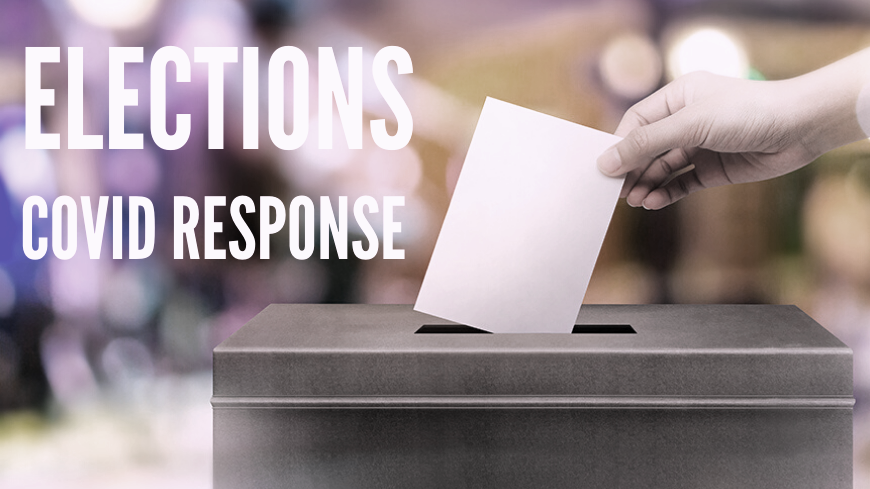
The COVID-19 pandemic has introduced new and innovative methods to the management of elections in Uganda. Within a few months, the pandemic has transformed fundamental aspects of individuals’ social lives, limiting their participation in public events and gatherings, and challenging the fulfilment of their individual and collective civic responsibilities and political rights.
It is therefore no surprise that elections have been an immediate and inevitable casualty of the pandemic. Elections are large, social events that mobilize groups of people and bring entire societies together. Elections are also the costliest and most administratively and logistically burdensome operation that a country can undertake. Moreover, not only do elections need to be run seamlessly, and attain high levels of participation; they also need to simultaneously ensure inclusivity, transparency, security and integrity at all stages.
The pandemic has rapidly challenged elections, making new and pressing demands on how they are managed. The main public health threat associated with elections arises from the requirement for voters to cast their ballots in person, at a polling station, most often on a single day.
The COVID-19 pandemic possess decisive tests that may reveal the health of any democracy because it indiscriminately exposes the strengths and weaknesses of the social contract between citizens and the government they have elected. They also expose the quality and accountability of systems and institutions of governance, governments’ competence and strength in responding to the crisis, and the effectiveness of the decisions they have taken to resolve the emergency.
When considering the possibility of holding the elections in Uganda amidst the pandemic, the most common dilemmas confronted by the state included:
• Ensuring sufficient and credible levels of voter participation that, in turn, would guarantee representation and legitimacy of the process;
• Provision of a safe voting environment for both voters and poll officials while minimizing the health risks associated with all electoral operations that require in-person interactions (including, for example, voter registration, election campaigns, voting and counting processes, observation, etc.); and
• Delivery of a transparent and accountable electoral process that enjoys a high degree of integrity despite the restrictions imposed by the pandemic.
The serious health risks of the pandemic require a choice regarding whether the state would the health of citizens, or that of the nation’s democracy? In practice, it does not require choosing one of these extreme ends; rather, it involves ensuring that voting is both safe and technically sound, and garners the needed legitimacy. This calls for an evaluation of the challenges posed by the pandemic to the management and integrity of the electoral process and balancing them with the health risks to all those participating is not an easy task. By deciding to hold an election during the pandemic, the state has had to first determine whether and how the risks of exposing voters, poll officials and others to exposure to COVID -19 at polling stations can be minimized. The state has devised appropriate safety measures to protect public health when voting as well as a strategy to reassure voters. Several safety measures have been introduced to reduce the risk of exposure at polling stations.
These include the use of personal protective equipment safeguarding the wearer from infection (e.g. protective masks, gloves, glasses, face shields, aprons), safety materials and signs to ensure safe distancing at each step of the voting process and other safety, hygiene and behavioral measures ranging from the use of disinfectants, temperature checking and maintaining a safe distance from others, to sanitizing hands and avoiding or limiting the use of objects commonly touched by others.
It is important for the stake holders to note the overall feasibility of holding the election under the numerous restrictions imposed by the pandemic. Secondly, the stakeholders should have the confidence and reassurance that the election can be effectively managed without undermining public safety or compromising fundamental human rights, democratic principles and norms.
As noted earlier, the main threat that elections held during a pandemic pose to public health arises from the requirement to converge within a limited time in confined and crowded places and polling stations, where maintaining hygiene rules and a safe distance from others may be difficult. The Country has opted to conduct the elections under these conditions, and the decisions about the time and place of campaign and voting may have major implications for determining and assuring voter safety. This has been clearly demonstrated during the Presidential Candidates nominations where people were seen in crowds along the road to the nomination center without taking into consideration the SOP’s and guidelines issues by the Ministry of Health.
Hence, when considering how to minimize the health-related risks posed by the pandemic, the stakeholders and citizens themselves need to reasonably and realistically consider the impact of these two critical factors in the act of campaign and voting.
In conclusion, it is clear that the pandemic has change dynamics concerning management of elections especially exercising one’s right to vote. Lessons can be learned regarding measures that should be in place to protect voters while ensuring that free, fair and safe elections take place in Uganda. Such measures should include adjusting voter registration rules and polling station procedures and encouraging early voting while upholding all the standard operating procedures against the spread of the pandemic.
By Dr. Patricia Achan Okiria
